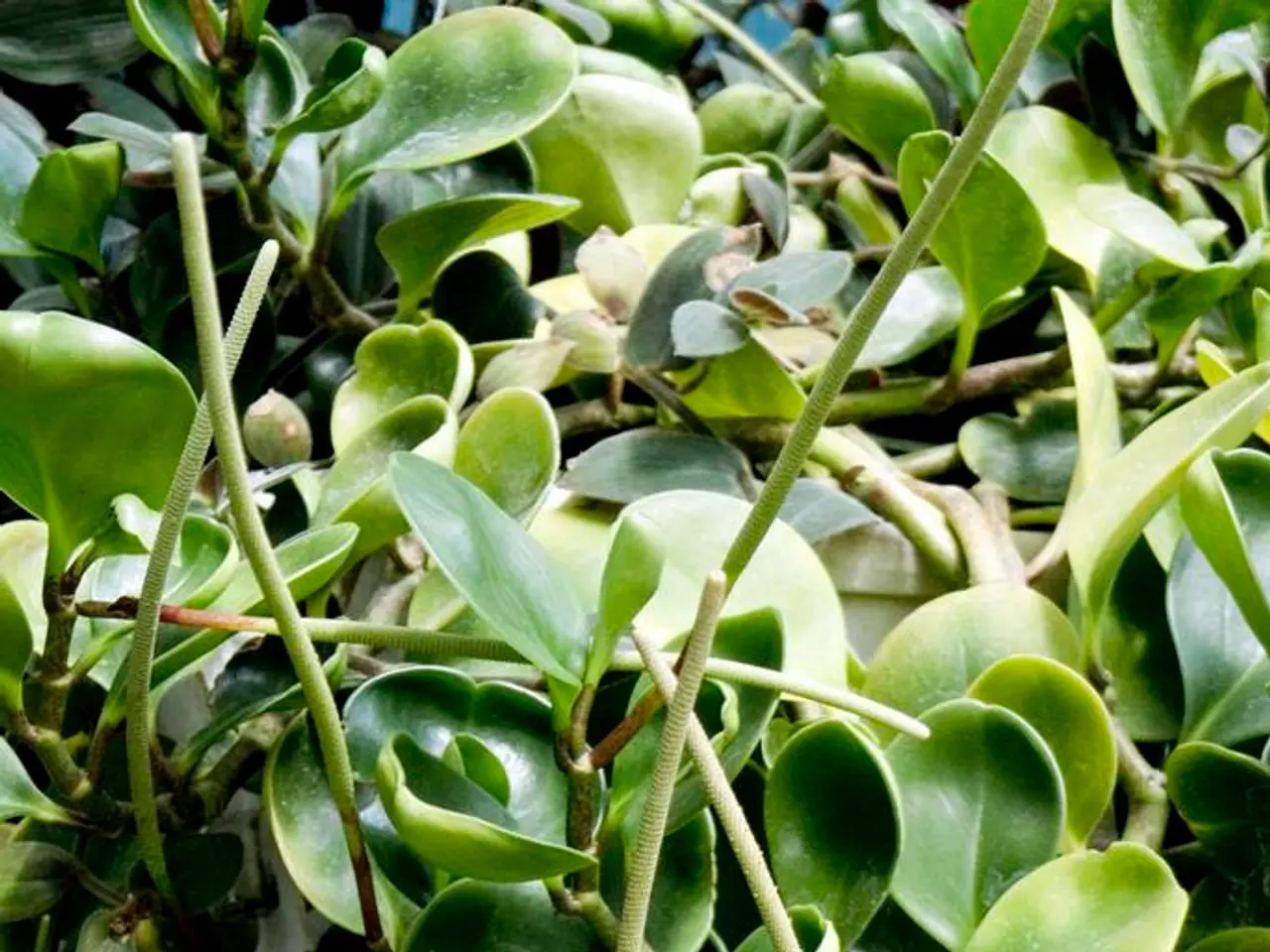Municipalities' strategies for drought preparedness
Freiburg, a city in southwest Germany, is currently grappling with the consequences of increasing drought. The drought has led to damaged or dying road trees, a heightened threat to water-dependent habitats and their species, drought conditions in the forest, and an increased forest fire risk. However, the city's drinking water supply remains secure, as it is obtained from the Bodensee or groundwater [1].
In response, Freiburg has published a new climate adaptation strategy in April. The strategy aims to address the consequences of climate change, with a focus on recognizing, considering, and avoiding them. The strategy includes around 300 measures, about 100 of which deal with the consequences of drought, water scarcity, and low water levels [2].
The areas requiring adaptation in Freiburg's climate adaptation strategy include urban greenery, agriculture and forestry/forest, nature conservation and biodiversity, water management and urban water management, as well as technical infrastructure [2]. Some of the measures include climate-adapted green space design, irrigation of urban trees to maintain urban greenery, and the development of a low water emergency plan [1].
The district office of Böblingen has also taken steps to conserve water resources. Since 1993, the office has been restricting the "common use of flowing waters". From June 1 to the end of September, a water withdrawal ban is in place, prohibiting the use of water from streams and rivers for irrigation [1].
Across Germany, other municipalities are also taking action. For example, the district of Rottweil has appealed for responsible water use, especially when dealing with streams, rivers, and other surface waters, and encourages avoiding or minimizing water withdrawals [3]. The Enzkreis calls for responsible water use and offers tips from the environmental department on how to reduce water consumption, such as choosing drought-resistant plants and using a drip irrigation system [3].
The measures in Freiburg's climate adaptation strategy range from complex topics such as better data provision, consultations, to raising citizens' awareness of the use of the water resource [2]. On a broader scale, German municipalities are promoting natural climate protection through ecosystem restoration, developing and implementing comprehensive municipal climate action concepts, and applying EU water resilience principles at the local level [1][2][4].
These measures form an integrated response combining ecosystem management, urban planning, efficient water use, and social participation to conserve water and mitigate drought impacts [3]. For instance, the initiative by the Federal Environment Minister Schneider supports local authorities in investing more in protecting and managing natural landscapes that enhance local water retention and reduce drought risk [1].
As the drought conditions remain critical in parts of Germany, especially in southern and eastern regions, these measures are crucial in ensuring resilience in drought conditions [3]. Andrea Hartmann from the environmental department of the Enzkreis recommends choosing cultures suitable for the changing climate when designing gardens and exchanging plants. The timing of irrigation is also important to avoid evaporation [3].
In conclusion, German municipalities are tackling drought by enhancing natural water retention landscapes, institutionalizing climate action plans emphasizing water efficiency and urban greening, and leveraging increased funding and EU policy frameworks to implement flexible, locally adapted water conservation strategies [1][2][4].
References: [1] Federal Ministry for the Environment, Nature Conservation, Nuclear Safety and Consumer Protection. (2025). Climate Adaptation Strategy in Freiburg. Retrieved from https://www.bmuv.bund.de/bmuv/en/climate-adaptation-strategy-in-freiburg/
[2] German Federal Government. (2025). Climate Adaptation Strategies in German Municipalities. Retrieved from https://www.bundesregierung.de/breg-en/themen/klimaschutz/klimaschutz-in-deutschland/klimaschutz-in-deutschland-1361070/klimaschutz-in-deutschland-1361070-203543-btn-start.html
[3] Deutsche Welle. (2025). German Cities Face Water Shortages Amid Drought. Retrieved from https://www.dw.com/en/german-cities-face-water-shortages-amid-drought/a-58610370
[4] European Commission. (2022). EU Water Resilience Strategy. Retrieved from https://ec.europa.eu/info/strategy/priorities-2020-2024/europe-fit-for-the-digital-age/resilience/eu-water-resilience-strategy_en
- The climate adaptation strategy in Freiburg, consisting of around 300 measures, emphasizes economic and social policy regarding the consequences of climate change, particularly addressing drought, water scarcity, and low water levels, through measures such as climate-adapted green space design and irrigation of urban trees.
- Across Germany, municipalities are not only implementing measures focused on water management and urban water management but also integrating health-and-wellness aspects, such as the recommendation by Andrea Hartmann from the Enzkreis to choose cultures suitable for the changing climate when designing gardens and exchange plants, to ensure resilience during drought conditions.
- In line with the EU Water Resilience Strategy, German municipalities are not only addressing the environmental-science aspect of drought through ecosystem restoration but also incorporating social participation, urban planning, and efficient water use, forming an integrated response that combines various disciplines to conserve water and mitigate drought impacts.




